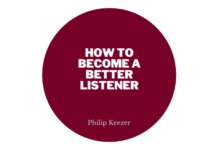The ability to communicate complex ideas is what makes humans unique.
In a world that feels more connected than ever, it can be easy to get lost in the noise. However, the power of rhetoric and good communication remains vital to entrepreneurs. Here, we explore this fascinating skill in more detail.
The importance of communication
Whether you are speaking to your staff or your customers, good communication is essential. If you cannot bring your staff to see the vision of your brand and business, then they will struggle to communicate its worth effectively.
Communication helps you to connect with customers and find out what they really want. Being able to have meaningful and clear conversations with stakeholders and investors – on and offline – can be the difference between creating advocates and detractors. Good communications then are business critical. And while we may think good communications are a modern concern, in fact it’s something the ancients also devoted a great deal of time towards through the study of rhetoric.
What makes good rhetoric?
Rhetoric, as defined by Aristotle, means the ability to write or speak persuasively.
Good rhetoric is often characterised by ethos (the emotions and ethics that the speaker shows), logos (appealing to the logic of your intended audience), and pathos (evoking emotion from your audience). With these three elements, Aristotle argued, you can appeal to every aspect of a person.
Great rhetoricians
There have been many great people throughout history who have focused on these principles. Roman historian Cicero is often cited as one of history’s greatest rhetoricians, but down the ages there have been countless others in fields ranging from politics and literature to business and advertising.
Some great contemporary examples of powerful rhetoric can be found in this article.
The skill of good rhetoric is knowing which principle to lean on most heavily in any given communication, while also invoking the others. Steve Jobs for example, speaking to relied heavily on ethos when addressing Stanford University with these rousing words:
“You can’t connect the dots looking forward; you can only connect them looking backward. So you have to trust that the dots will somehow connect in your future. You have to trust in something — your gut, destiny, life, karma, whatever. This approach has never let me down, and it has made all the difference in my life.”
Meanwhile Churchill’s famous ‘finest hour’ speech made heavy use of pathos through references to civilisational risk and with the warning that society stood poised to “sink into the abyss of a new Dark Age”.
Ancient skill and modern technology
Just as history has been defined by great rhetoricians, so will be the future. Technology has changed but these fundamental principles of powerful communication are timeless.
Knowing how to appeal to an audience through rhetoric is just as crucial when it comes to social media and communicating a brand as it ever has been. One of the most successful brands in the world, Coca-Cola, advertises its core values as “leadership, collaboration, integrity, accountability, passion, diversity, and quality”, appealing directly to the consumer’s pathos, relying on nostalgia.
The company’s Christmas campaign is a classic example, designed to elicit feelings of warmth, family and friendship.
What makes for bad rhetoric?
Just as good rhetoric can turbocharge business, so poor rhetoric can have the opposite effect. But what makes for bad rhetoric and what should aspiring communicators avoid?
Poor communication and rhetoric often come down to a fundamental misunderstanding of how to appeal to your audience. For example, you would not want to appear too overly emotional and passionate (displaying ethos) for stakeholders who want only the facts and figures (requiring logos).
If we take a moment to reflect on the BP oil spill in 2010 for example, the company released a string of advertisements which apologised for the oil spill occurring (showing ethos and appealing to pathos), but did not see that they should have been exemplifying logos by approaching the situation logically and putting their finances into remedying the situation.
This strategy was, at the time, publicly criticised by figures including the US President – so something had clearly gone wrong in the communications strategy.
So, rhetoric really does matter, whether you are giving a speech or setting up an email campaign. We can see both how excellent rhetoric can create belief and investment, and how poor communication can damage all your other efforts. For entrepreneurs, taking lessons from both of these sides can help you to develop your own communication style, ensuring that you can harness the power of rhetoric to benefit you.













